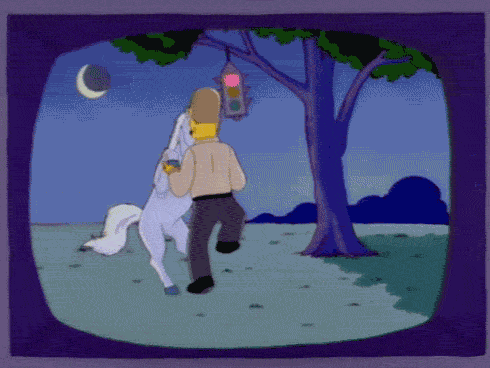|
invito al cielo
Join Date: Apr 2006
Posts: 28,843
|
Allow me to tell you about a little movie. Nay, to call it a "little movie" is to insult this masterful piece of film. When I returned to my domicile on September 14, 2002 following two weeks of class, I found my brother on the couch in our living room watching, on a cable channel, a movie known, in title, as Home Alone 2: Lost In New York.
The irony of the title is confusing at first. "If he's lost in New York, then how can he be home alone?" Ah, but that is viewing the film on a purely superficial level. Yes indeed, our protagonist and hero Kevin McAllister is indeed roaming the streets of New York City in a manner which does not come close to resembling being home alone, but that's not the point. His soul is what is alone at home, in the kingdom of his body, completely lacking any mode of support similar to that which he receives when he is with his family in Chicago. This allegory holds true to the first, weaker film in the series as well, but only has a chance to come to its full fruition when the title transcends Kevin's physical situation and embodies conditions deeper than those that are obvious.
Another brilliant facet of the film is that it moves beyond the domestic issues explored in the original film and hits upon several much deeper and more important social issues that show maturation on the part of both the director and the screenwriter. The "pigeon lady" played by Brenda Fricker, in what indeed has to be the performance of her career, rivaled only by her role as the school headmistress in the equally brilliant Masterminds, displays the heart and soul of the plight of the urban poor while making it totally clear to the audience that this is a significant social issue that needs to be dealt with as soon as possible. She takes refuge at night in the loft of a concert hall populated by a symphony orchestra, and it is from this, not frivolous personal niceties like expensive clothing and exquisite food, from which she derives the largest amount of pleasure in life.
However, even more important are the antagonists Harry and Marv, portrayed with gusto by Joe Pesci and Daniel Stern, each respectively turning in the most multi-layered, complex turns of their career, even surpassing those given in such cinematic masterpieces as 8 Heads In A Duffel Bag and Rookie Of The Year. Chris Columbus portrays their characters as evil, but evil in a fashion which completely and thoroughly gets across the world-weary, bitter outlook that each of them has towards this farce which we call life after spending eight months in prison for the mere crime of breaking and entering. Marv claims that he wants to reform the criminals' act from being the water-obsessive "Wet Bandits" to the adhesive "Sticky Bandits," but the shift, despite being frowned upon by Harry, is much more than meets the eye. The "Wet," clearly a reference to the prohibition movement of the 1920's, was symbolic of the recklessness which once defined the lives of the two bandits. The "Sticky," on the other hand, is symbolic of the bandits' newfound determination to "stick with it" and fulfill their ambitions and dreams regardless of any roadblocks that might inadvertendly cross their paths. This ambition: to rob the largest toy store in New York and walk off with the cash contained within. This is not merely an eloquent social commentary on the frailty of the capitalist system, but also, through the choice of a toy store as the base of the planned robbery, stands as Harry and Marv's grand attempt to regain the youth that they lost in being forced by cruel nature to resort to a life of crime.
The film's bravura ending, in which Kevin lures the two burglars through a maze of traps and tricks in a startlilngly similar fashion to that of the first film, is a notable improvement over the themes explored in the original movie as well. While in Home Alone, Kevin foiled the burglars' plans through child-like objects such as Christmas ornaments and Micro Machines, in this film he subjects them to 10,000 volt electric charges and continuous fifty-foot drops onto the concrete floor of the brownstone's basement. Not only have Kevin's methods grown increasingly ingenious and complex compared to the simplicity of his plans in the first film, the stakes are higher as well - when encountered by a normal human being, sticking one's head, engulfed in flames, into a toilet filled with flammable liquid would almost certainly result in death. It is only through the sheer determination of the two burglars, somehow translated into a sense of increased physical endurance, that they are able to survive Kevin's master plan and traverse through the complete literary cycle of poetic justice. In the end, Kevin wins, but Harold and Marvin are, in some ways, the true heroes.
All in all, this is an absolutely brilliant movie, and watching it during my second year at the University of California, Berkeley has only made it all the more clear that when I regarded the movie as a piece of hilariously light entertainment when I was in fourth grade, I was merely scratching the surface of a great work which will outlast the ages and rightfully stand as a defining artifact of late 20th-century American culture for centuries, nay, millennia to come.
Amen.
__________________

|